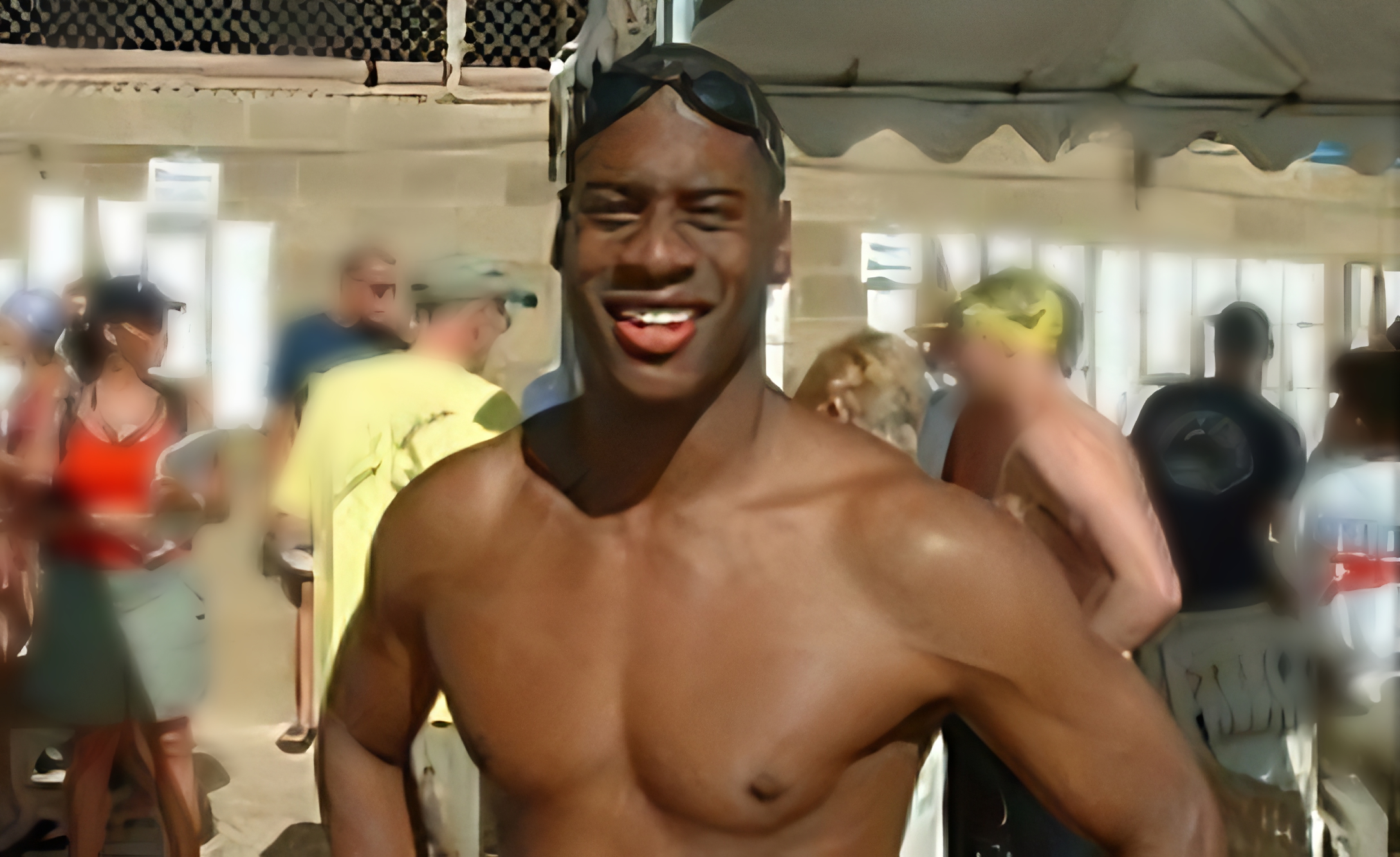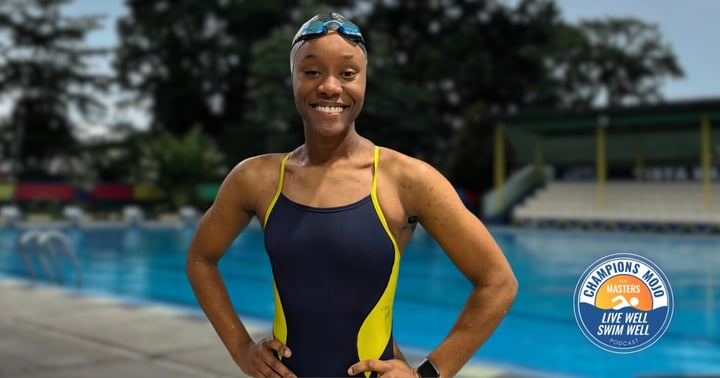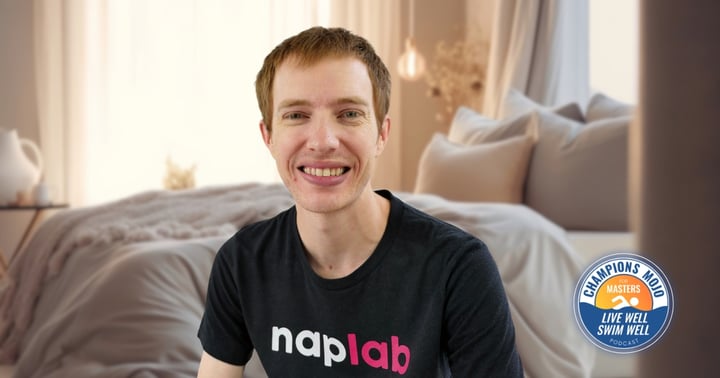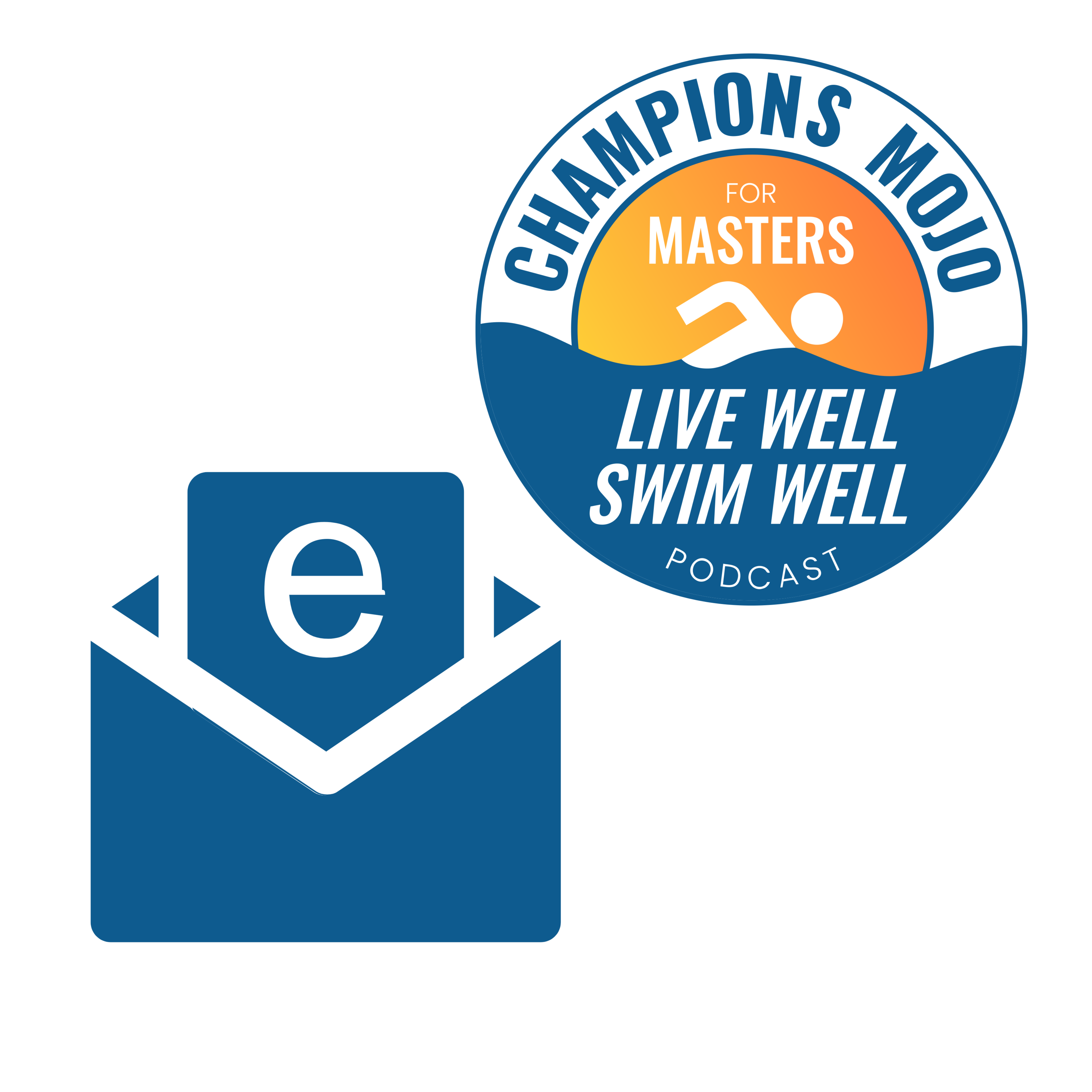How Jeff Commings Trains Like a World-Class Masters Swimmer While Working Full Time

How Jeff Commings Trains Like a World-Class Masters Swimmer While Working Full Time
Takeaways to Help You Live Well and Swim Well
If you are a Masters swimmer, triathlete or busy adult trying to fit training into a full life, this episode with Jeff Commings is pure gold.
Jeff is a world record setting Masters swimmer, former University of Texas standout and Olympic Trials qualifier, long time swimming journalist and media personality for USA Swimming. He is also a full time business owner, partner and coach who still finds a way to be one of the fastest men in Masters swimming in the 45–49 age group.
The best part. He is not hiding any secrets.
In this conversation Jeff walks us through how he trains, tapers, recovers, fuels and thinks about swimming at a world class level as he ages. Below are the biggest takeaways you can use to upgrade your own Masters swimming and your life.
1. Build a Rhythm, Not Excuses
Jeff swims five days a week and lifts weights twice a week. That is it. About seven to eight hours of total weekly training.
The key is not volume. It is rhythm and consistency.
He gets up at 5 a.m. to swim before an eight hour workday when he has to. He works around long course pool schedules. He coaches swim lessons during normal Masters practice times so he often trains alone. He does not wait for the perfect situation. He creates a routine and protects it.
Your takeaway:
Pick a realistic weekly plan and commit to it. For example:
Masters practice three days a week plus one solo swim
One or two short strength sessions
One true recovery day
Then treat it like a non negotiable appointment. Masters swimmers do not need perfect schedules. We need repeatable ones.
2. Focus on Quality, Not Endless Yardage
Jeff used to count every yard and meter. Now he focuses on getting the most out of each workout instead of chasing big numbers.
Out of his five weekly swims, four have a “very hard” component. That might be:
Best average hundreds freestyle or backstroke
Race specific 50s and 100s
Brutal “exercise sets” like:
Dive 25 sprint
Climb out, 10 push ups
Dive 25 sprint
50 easy
Repeat six rounds
He is not mindlessly swimming back and forth. He is training to race.
Your takeaway:
If you are a Masters swimmer who usually just “gets the yards in,” start adding one or two focused sets each week:
A best average set (for example, 6 x 100 on an interval that gives you 20–30 seconds rest)
A sprint set with real rest (for example, 12 x 25 fast on 40 seconds)
You will get more progress from thoughtful pain than from random yardage.
3. Train Speed Even If You Are an “Endurance Person”
Jeff is a lifelong sprinter and lights up when he talks about sprint sets. Many Masters swimmers and triathletes are the opposite. They are comfortable swimming long and steady and uncomfortable going all out.
Jeff’s advice for distance based athletes who want to sprint better is simple and honest:
Do not jump straight from the mile to the 50
Start by racing the 100
Give yourself six to twelve months to train like a sprinter
Work on stroke rate, power and short sprint sets
Accept that your body will rebel at first and do it anyway
Your takeaway:
If you are a Masters swimmer or triathlete who wants more speed:
Add one sprint focused set each week (25s and 50s with lots of rest)
Start racing 100s, not just long distance events
Practice turning your arms over faster, even if it feels awkward
Speed is a skill and it improves when you actually train for it.
4. Taper Like a Masters Swimmer, Not a College Kid
This might be the biggest Masters swimming takeaway of the episode.
Jeff’s taper rules are clear:
He does not “officially” taper more than about six days
He never drops total workout volume below roughly 2,500 yards
He reduces intensity instead of shutting it down
He keeps little pockets of speed in his taper so his body stays sharp
He stops lifting weights about 10 days before his meet and tapers the gym work down before he stops
He learned the hard way that a two week taper left him feeling out of shape and flat. Masters swimmers who train 3,000 to 4,000 yards per workout do not need a college style taper. There is nothing to taper from.
Your takeaway:
If you are a Masters swimmer:
Shorten your taper to roughly five to seven days
Keep your yardage close to what a meet day will feel like
Maintain a bit of speed each workout instead of shutting it off
Stop heavy lifting ahead of time and taper your weights, not just your swimming
And most important. Listen to your body, not your anxiety. If you feel “ready to race” ten days out, you probably peaked too early.
5. Respect Soreness and Recovery
Jeff wakes up sore too. That is a Masters swimmer thing. The difference is in how he responds.
He always has one “recovery swim” day, usually Saturday
He has two complete days off from both swimming and lifting
He rarely takes extra full rest days in the middle of a training block because he does not want his body sliding into taper mode too soon
If something feels like an injury rather than training discomfort, he modifies. He will kick with fins or avoid freestyle instead of forcing it
He is also relentless about stretching. Often in the water, on deck and even in the shower.
Most Masters swimmers do not stretch after practice. Jeff is convinced that is one reason people feel so stiff and beat up.
Your takeaway:
Build one easy swim day into your week
Protect at least one full day off every week
Stretch after practice, even for five minutes
Listen to the difference between “training sore” and “injury pain” and adjust
You want to wake up pleasantly sore, not broken.
6. Eat for Health and Performance, Not Just One or the Other
Jeff has a family history of high blood pressure and high cholesterol. Medication alone did not bring his numbers where he wanted them, so in 2015 he experimented with going fully vegan.
The results were mixed:
The good. His cholesterol dropped 50 points, into the 150s, and he felt great in training
The bad. He lost about 15 pounds of muscle and raced terribly
Instead of abandoning the whole thing, he kept what worked and adjusted what did not. Now he is a “daytime vegan”:
Breakfast and lunch are vegan
Dinner includes animal protein so he can maintain muscle mass and sprint power
His health markers stayed good and his racing returned to normal.
Your takeaway:
You do not have to copy Jeff’s exact “daytime vegan” plan. The real lesson is that Masters swimmers can:
Use nutrition to protect long term health
Adjust their plan if performance suffers
Pay attention to how food affects lab numbers and how it affects the clock
Experiment, track the results and aim for a way of eating that supports both your heart and your swims.
7. Help Swimming Look More Like the World We Live In
Beyond fast times, Jeff cares deeply about who gets access to the sport.
Through Swimmers for Change and his own coaching, he is working to bring more people of color into swimming. He reminds us that for many Black families, there is a painful history around public pools. Generations were literally pushed out or kept out. That trauma still affects who learns to swim and who sees themselves on a pool deck.
Jeff’s advice is very practical.
If you know someone who is Black, Hispanic, Asian or from any underrepresented group who might be even slightly curious about swimming, do more than say “you should swim”:
Pay for a swim lesson or take them to one
Invite them to join you at a Masters swimming workout
Meet them at a public pool and simply swim a few laps together
Follow up when they say “I’ll think about it”
Your takeaway:
Use your Masters swimming life to open doors. Do not just encourage people from the sidelines. Walk them onto the deck with you.
Quick Action Plan: Jeff Commings Takeaways
Here are simple changes you can make this month based on Jeff’s Masters swimming wisdom:
Pick your weekly rhythm
Decide your swim days, strength days, recovery day and full rest day
Add one quality set per workout
Best average, sprint or race specific, not just “more yards”
Train some speed, even if you are a distance person
One weekly sprint set with real rest
Shorten and sharpen your taper
Five to seven days, keep 2,500+ yards and some speed
Stretch after practice
Five minutes in the water or on deck, every session
Experiment with nutrition
More plants and less processed food, while keeping enough protein and calories to support your Masters swimming goals
Invite someone new into the water
Actually bring a friend or co worker to a lesson or Masters practice
Jeff proves that you can work full time, age up into new brackets, deal with real life stress and still swim at a world class level in Masters swimming.
You may never do lactic acid dive 25s with push ups between, but you can absolutely borrow his mindset and his habits.
Swim smart, live well and maybe go stretch after you read this.











